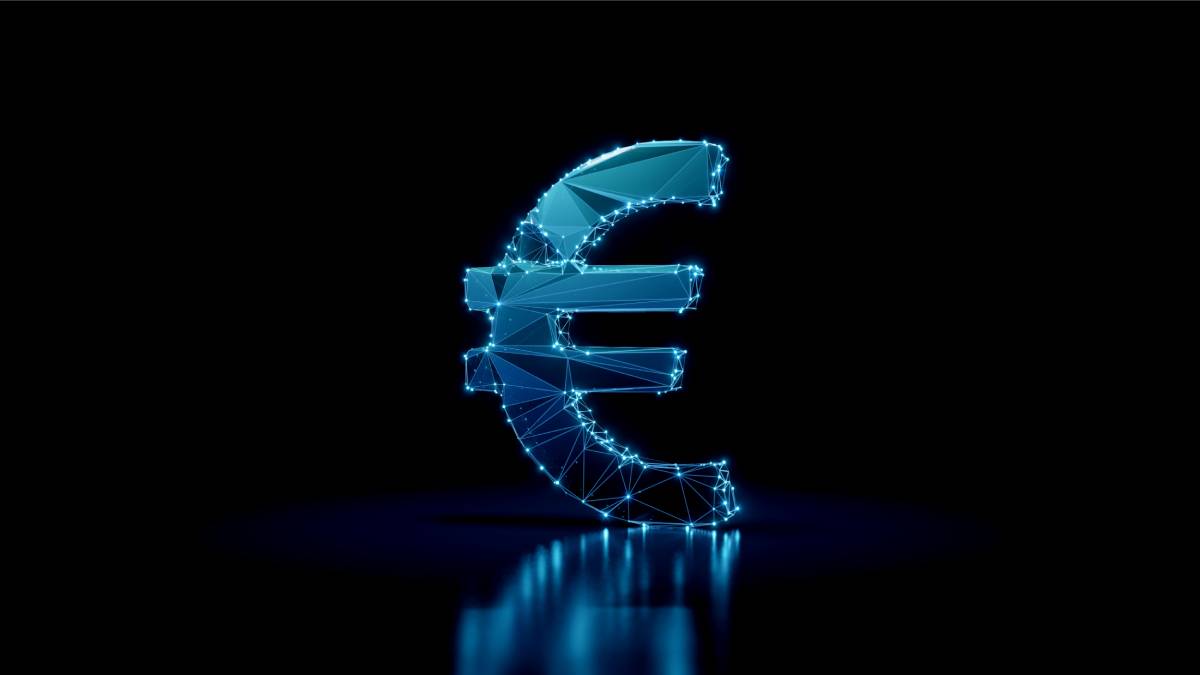The digital euro is on the way

Digital money for a digitally native generation
Digitalization is affecting everything and is accelerated by the pandemic. One area unable to escape this accelerated trend is money.
Money inventions have challenged and transformed the structure of the financial system throughout history. Time and again, innovations have sparked disputes about the dangers they represent and the benefits they provide, as well as the role of central banks in fostering financial trust. Not so long ago, cash was more or less the only way to make an immediate purchase. However, we have grown accustomed to using forms of private digital money such as online bank transfers, debit cards, and applications on our smartphones or smartwatches.
Cryptocurrencies
The rise of cryptocurrencies and private stablecoins, like Facebook’s Diem (formerly Libra), is forcing governments to rethink national digital currencies. At an international level, the digitalization of money and payments is being examined by the G7 and the G20. In Europe, it is frequently discussed by Finance Ministers in the Eurogroup. Some fear that digitalization, if not properly governed could create instability and even threaten the monetary system. Central banks are considering whether they should innovate by offering digital money. Unlike bitcoin and other cryptocurrencies, central bank digital currencies (CBDC) are government-issued, basically digital versions of existing national currencies. Over the past two years, central banks around the world have been working on CBDCs. A survey in 2020 showed that 86% of all central banks are conducting research on CBDCs, and as of July 2021, 56 central banks have publicly communicated their research and development efforts.
Digital money in circulation
China has been experimenting with the digital yuan since 2014. The digital yuan has already been used to process over $5 billion in transactions. Sweden recently launched a pilot of the e-Krona with a small number of real-life market participants. The “sand dollar,” in the Bahamas, is already in operation used as a means of payment. Some countries are taking a completely different approach. In the fall, El Salvador became the first nation in the world to adopt bitcoin as a national currency. El Salvador’s citizens can use bitcoin to pay any business for its products and services.
Two or three years ago, few were talking about the digital euro. Now the European Central Bank (ECB) is planning to unveil the digital euro in the next five years. The rise of stablecoins to over $120 billion combined with the expansion of big tech companies into finance has brought the digital euro to the foreground.
European Central Bank
In October the ECB started an investigation phase for the possible introduction of a digital euro. The digital euro would still be a euro, only in digital form. Unlike cash, the digital euro will be used digitally and in a programmable way, but payments with a digital euro will not be as anonymous as a payment in cash.
The digital euro will be an attractive alternative to cash. It will function as a crypto asset that can be integrated into fully automated transactions, without the need for any human intervention. According to estimates, the internet of things will connect 24 billion devices by 2030, with 23% of the devices in the EU.
From a strategic standpoint, a digital euro accessible to foreign users would cut the cost of using the euros in cross-border payments, increase the international role of the euro, strengthen Europe’s strategic autonomy, and lessen the global domination of the US dollar. But, issuing a digital euro would affect society as a whole.
Complex questions and difficult choices lie ahead about how to introduce the digital euro to the market. The right balance needs to be struck to make the digital euro robust and easy to operate. In a truly digitalized economy, CBDCs are a natural next step.
Digital national currencies like the digital euro will accelerate our digital evolution, as we transition from fiat to sound money (that is not prone to sudden appreciation or depreciation in purchasing power over the long term), like bitcoin.




